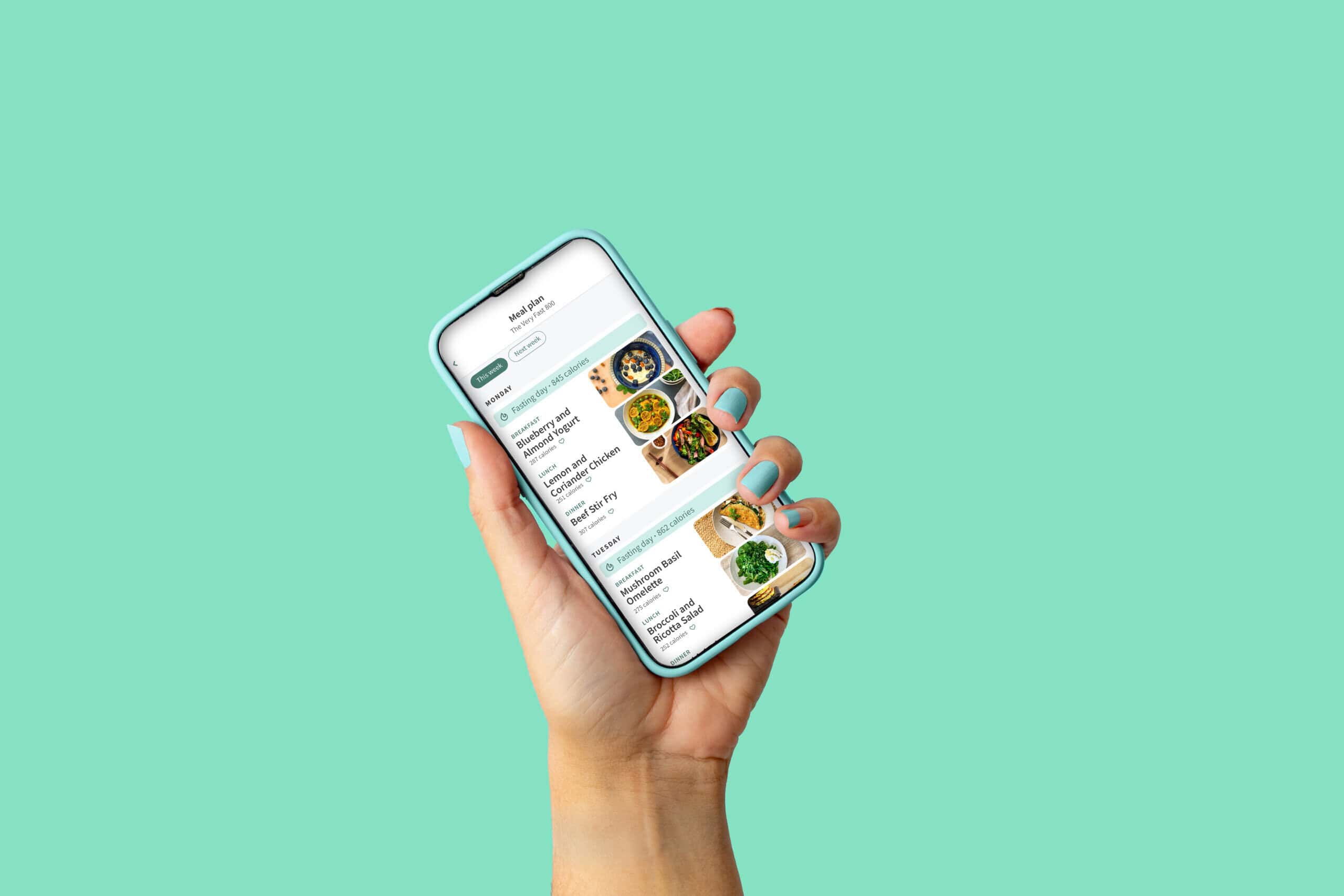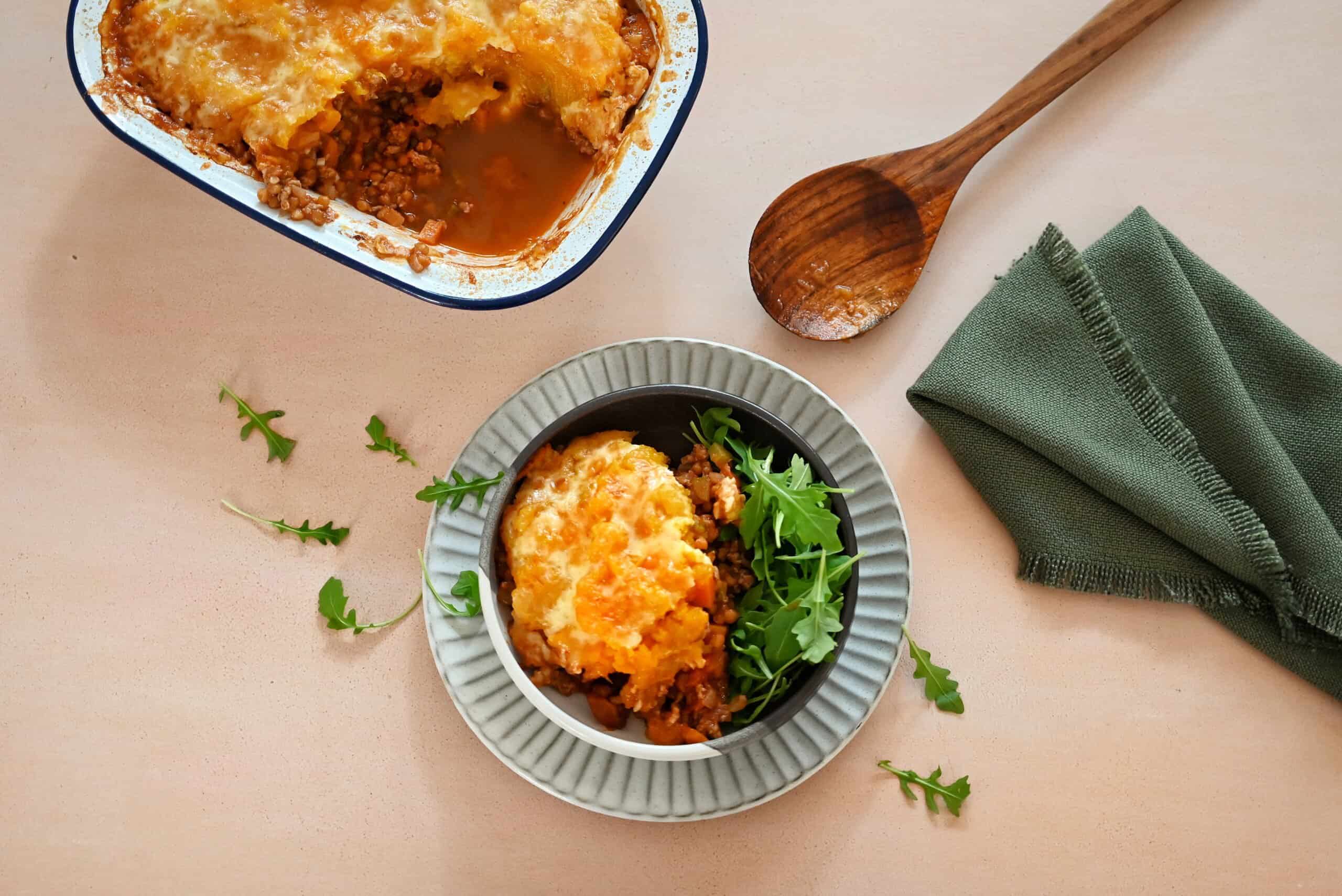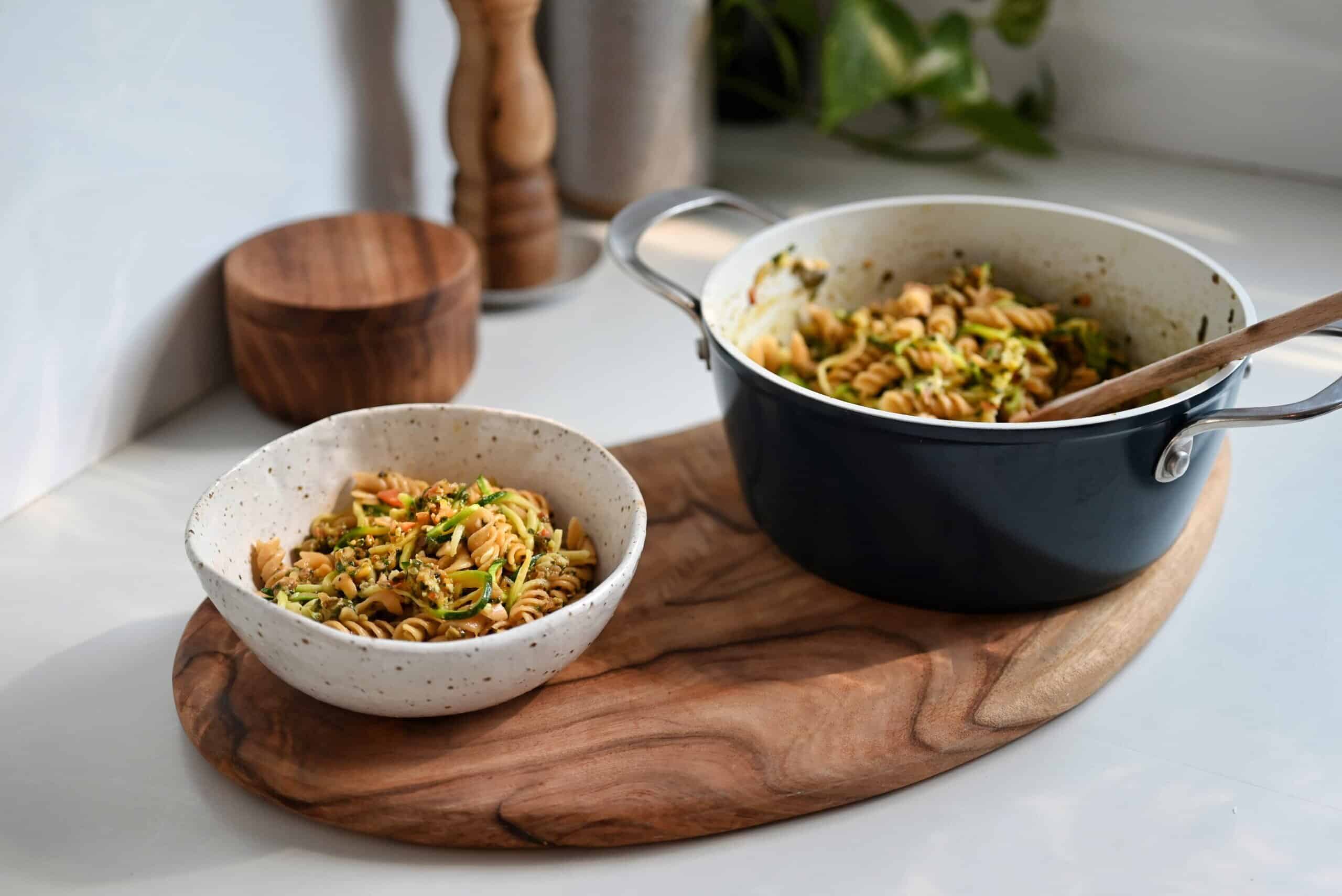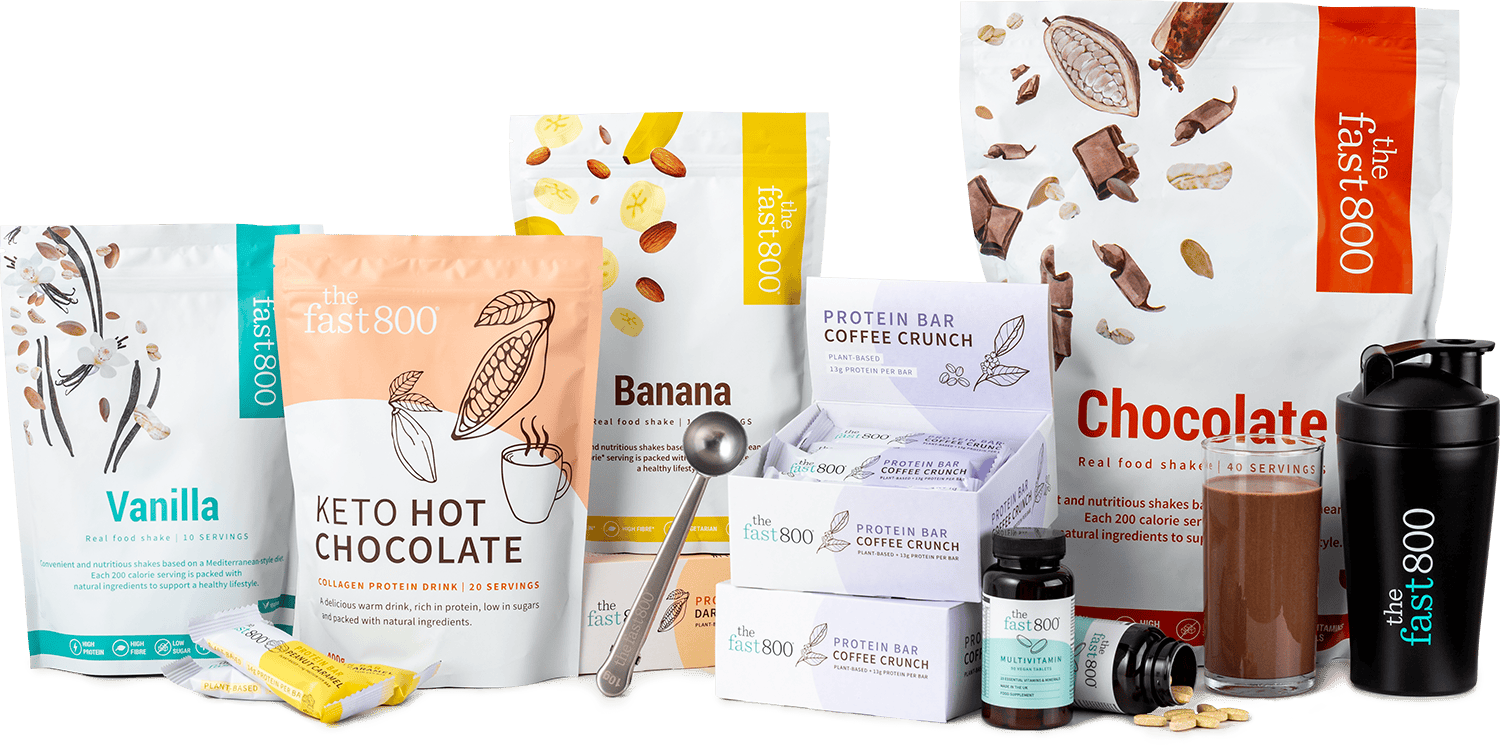Pumpkin recipes for Autumn
Pumpkin season is well and truly here: prepare to see them not only decorating homes, but also being served in sugary recipes like pies and pumpkin-spiced coffees. While festive holidays, like Halloween, can feel like a difficult time to keep on top of your health goals, having just a few healthy pumpkin recipes up your sleeve can make sure you still get to enjoy those classic Autumnal flavours, while prioritising your health. It’s also a great way to use the leftover flesh after carving your spooky masterpieces.
Keep reading to find out our top pumpkin recipes, as well as the environmental and health benefits of eating this popular winter squash!
Note – butternut squash can be used interchangeably with pumpkin in any of the recipes below.
The environmental benefits of enjoying pumpkin recipes!
Using pumpkins in your cooking is an excellent way to reduce waste after an afternoon of pumpkin carving. A whopping 22.2 million pumpkins are thrown away each year, and around 60% of people discard the pumpkin flesh after carving which then produces the harmful greenhouse gas, methane, in landfill.[1] So, this year, rather than scooping and dumping the flesh out of the inside of your Halloween decorations, try using them in these tasty pumpkin recipes to help reduce waste.
Not only does eating pumpkins do good for the planet, but consuming this nutrient-dense food does your body plenty of good too.[2]
Calli lost 21kg in 12 weeks!
What could you achieve in 12 weeks? Get weight loss tools, meal plans and support in the palm of your hand with our new app.
7-DAY FREE TRIAL
The health benefits
Pumpkins are a versatile mature winter squash (often referred to as a veggie, but technically a fruit due to their seeds) and can be used in a variety of dishes, from sweet cakes to savoury soups. They’re almost 94% water, so they are low in calories at just 26 calories per 100g which makes them ideal for pumpkin recipes that you can enjoy on both fasting and non-fasting days.
Some of the key nutrients found in pumpkins include:
- Beta-carotene: Pumpkins are high in the antioxidant ‘beta-carotene’, which our body turns into Vitamin A. Studies have shown that it significantly lowers your risk of developing stomach, breast, pancreas, and throat cancer.[3][4][5][6] Your body is able to absorb more beta-carotene when it’s cooked, which is just another reason to enjoy home-cooked pumpkin recipes!
- Vitamin A: Pumpkins are a great source of Vitamin A. Just one cup of pumpkin can provide 200% of your recommended Vitamin A intake, helping to benefit healthy vision, reproduction and organ function.[7]
- Vitamin C: Pumpkins are also very high in Vitamin C which has been shown to increase white blood cells production, make wounds heal faster and help immune cells work more effectively.[8][9] This means that eating delicious pumpkin recipes can actually help fight infections, making them ideal to eat if you have a cold or an injury.
- Potassium: Around 10% of your daily potassium can be found in one cup of pumpkin. This helps to control blood pressure and improve hypertension, which in turn reduces your risk of stroke and cardiovascular disease.[11] Potassium also improves bone health, decreases the risk of type 2 diabetes and acts as an electrolyte which maintains optimal hydration. [12][13]
- Polysaccharides: Polysaccharides are long chains of carbohydrate molecules that are an important source of energy. The beneficial polysaccharides found in pumpkin pulp have been shown to have hypolipidemic and hypoglycemic effects, which benefit insulin levels and reduce blood lipids, blood pressure and the risk of type 2 diabetes.[14][15]
- Fibre: Pumpkin flesh and seeds are high in fibre, which can help to curb your appetite, among other health benefits like supporting a healthy gut and digestive system. As a result, pumpkins may help promote weight loss and weight management.
- Magnesium, zinc, iron, Vitamin E, manganese and protein: Pumpkin seeds are high in many nutrients which are known to improve heart health, blood sugar levels, and sleep.[16] The seeds are also one of the best natural sources of magnesium which is important for blood pressure and blood sugar levels.[17] Roast, and enjoy them sprinkled on salads or pumpkin recipes to reap maximum benefits.
Join our email community
Learn more about The Fast 800 approach to healthy living by receiving our free content, health tips and recipes as well as exclusive offers, delivered straight to your inbox.
Popular pumpkin recipes to make this October
Lunch
This pumpkin recipe takes just 15 minutes to prepare, and at 221 calories per portion it’s ideal for a fasting day lunch. Pair with Sourdough bread for non-fasting family members or children and don’t forget to add a spooky spider web design on top this Halloween with protein-rich Greek yoghurt.
Butternut squash or pumpkin salad
Our fasting-friendly seasonal salad is as versatile as it is tasty: switch out the recipe’s butternut squash for pumpkin to make a scarily good Halloween salad. It’s warm yet refreshing, hearty yet light, and is packed full of fibre and nutrients to keep you full for a whole afternoon of festive fun.
Dinner
Vegetarian Parmigiana
This hearty vegetarian dinner can be turned into a pumpkin recipe easily by switching out the butternut squash for pumpkin slices. It’s packed full of antioxidants, vitamins, minerals, protein and fibre which are all ideal for warding off colds and illness.
Keto pizza topped with pumpkin
If you’re currently on a keto diet but don’t want to miss out on the Friday night pizza party, give this pumpkin-topped keto pizza a go. It’s completely customisable, contains almost a third of your daily recommended protein and fibre, and is a fun one to make.
Occasional Treat
Protein brownies
We’re a big fan of using hidden veggies in recipes to boost nutritional contents, and this sweet pumpkin recipe has all the treats without the tricks! This recipe contains just five ingredients and takes just 5 minutes to whip together. With each brownie containing a whopping 10g of protein and just 151 calories, how could you say no?
Pumpkin Spiced Festive Cake
If you’re a fan of those warming spices at this time of year, then this delicious dessert is for you. Containing all the classic flavours such as ginger, cinnamon and cardamom, a sweet pumpkin recipe like this one is sure to satisfy that pumpkin-spice craving. Better yet, it’s high in fibre and low in calories at just 277 calories per serving.
To check out more delicious pumpkin recipes to try this season, use the search function in our Programme to look for recipes using ‘pumpkin’, exclusive to members. Happy carving!
Hubbub Eat Your Pumpkin polling research: Accessed: https://issuu.com/hubbubuk/docs/eat_your_pumpkin_2022_polling_1_?fr=sYTMyMDUyNjM3NTM
Batool M, Ranjha MMAN, Roobab U, Manzoor MF, Farooq U, Nadeem HR, Nadeem M, Kanwal R, AbdElgawad H, Al Jaouni SK, Selim S, Ibrahim SA. Nutritional Value, Phytochemical Potential, and Therapeutic Benefits of Pumpkin (Cucurbita sp.). Plants (Basel). 2022 May 24;11(11):1394. doi: 10.3390/plants11111394. PMID: 35684166; PMCID: PMC9182978.
Zhou Y, Wang T, Meng Q, Zhai S. Association of carotenoids with risk of gastric cancer: A meta-analysis. Clin Nutr. 2016 Feb;35(1):109-116. doi: 10.1016/j.clnu.2015.02.003. Epub 2015 Feb 18. PMID: 25726725.
Hu F, Wang Yi B, Zhang W, Liang J, Lin C, Li D, Wang F, Pang D, Zhao Y. Carotenoids and breast cancer risk: a meta-analysis and meta-regression. Breast Cancer Res Treat. 2012 Jan;131(1):239-53. doi: 10.1007/s10549-011-1723-8. Epub 2011 Sep 7. PMID: 21901390.
Huang X, Gao Y, Zhi X, Ta N, Jiang H, Zheng J. Association between vitamin A, retinol and carotenoid intake and pancreatic cancer risk: Evidence from epidemiologic studies. Sci Rep. 2016 Dec 12;6:38936. doi: 10.1038/srep38936. PMID: 27941847; PMCID: PMC5150257.
Ge XX, Xing MY, Yu LF, Shen P. Carotenoid intake and esophageal cancer risk: a meta-analysis. Asian Pac J Cancer Prev. 2013;14(3):1911-8. doi: 10.7314/apjcp.2013.14.3.1911. PMID: 23679292.
National Institutes of Health, Vitamin A and Carotenoids, Accessed: https://ods.od.nih.gov/factsheets/VitaminA-HealthProfessional/
Huijskens MJ, Walczak M, Koller N, Briedé JJ, Senden-Gijsbers BL, Schnijderberg MC, Bos GM, Germeraad WT. Technical advance: ascorbic acid induces development of double-positive T cells from human hematopoietic stem cells in the absence of stromal cells. J Leukoc Biol. 2014 Dec;96(6):1165-75. doi: 10.1189/jlb.1TA0214-121RR. Epub 2014 Aug 25. PMID: 25157026.
Carr AC, Maggini S. Vitamin C and Immune Function. Nutrients. 2017 Nov 3;9(11):1211. doi: 10.3390/nu9111211. PMID: 29099763; PMCID: PMC5707683.
https://fdc.nal.usda.gov/fdc-app.html#/food-details/1103224/nutrients
He FJ, MacGregor GA. Beneficial effects of potassium on human health. Physiol Plant. 2008 Aug;133(4):725-35. doi: 10.1111/j.1399-3054.2007.01033.x. PMID: 18724413.
Filippini T, Violi F, D’Amico R, Vinceti M. The effect of potassium supplementation on blood pressure in hypertensive subjects: A systematic review and meta-analysis. Int J Cardiol. 2017 Mar 1;230:127-135. doi: 10.1016/j.ijcard.2016.12.048. Epub 2016 Dec 21. PMID: 28024910.
Terker AS, Zhang C, McCormick JA, Lazelle RA, Zhang C, Meermeier NP, Siler DA, Park HJ, Fu Y, Cohen DM, Weinstein AM, Wang WH, Yang CL, Ellison DH. Potassium modulates electrolyte balance and blood pressure through effects on distal cell voltage and chloride. Cell Metab. 2015 Jan 6;21(1):39-50. doi: 10.1016/j.cmet.2014.12.006. PMID: 25565204; PMCID: PMC4332769.
Wang S, Lu A, Zhang L, Shen M, Xu T, Zhan W, Jin H, Zhang Y, Wang W. Extraction and purification of pumpkin polysaccharides and their hypoglycemic effect. Int J Biol Macromol. 2017 May;98:182-187. doi: 10.1016/j.ijbiomac.2017.01.114. Epub 2017 Jan 30. PMID: 28153462.
Song H, Sun Z. Hypolipidaemic and hypoglycaemic properties of pumpkin polysaccharides. 3 Biotech. 2017 Jul;7(3):159. doi: 10.1007/s13205-017-0843-1. Epub 2017 Jun 29. PMID: 28660447; PMCID: PMC5489452.
Arab A, Rafie N, Amani R, Shirani F. The Role of Magnesium in Sleep Health: a Systematic Review of Available Literature. Biol Trace Elem Res. 2023 Jan;201(1):121-128. doi: 10.1007/s12011-022-03162-1. Epub 2022 Feb 19. PMID: 35184264.
Zhao B, Deng H, Li B, Chen L, Zou F, Hu L, Wei Y, Zhang W. Association of magnesium consumption with type 2 diabetes and glucose metabolism: A systematic review and pooled study with trial sequential analysis. Diabetes Metab Res Rev. 2020 Mar;36(3):e3243. doi: 10.1002/dmrr.3243. Epub 2019 Dec 11. PMID: 31758631.











